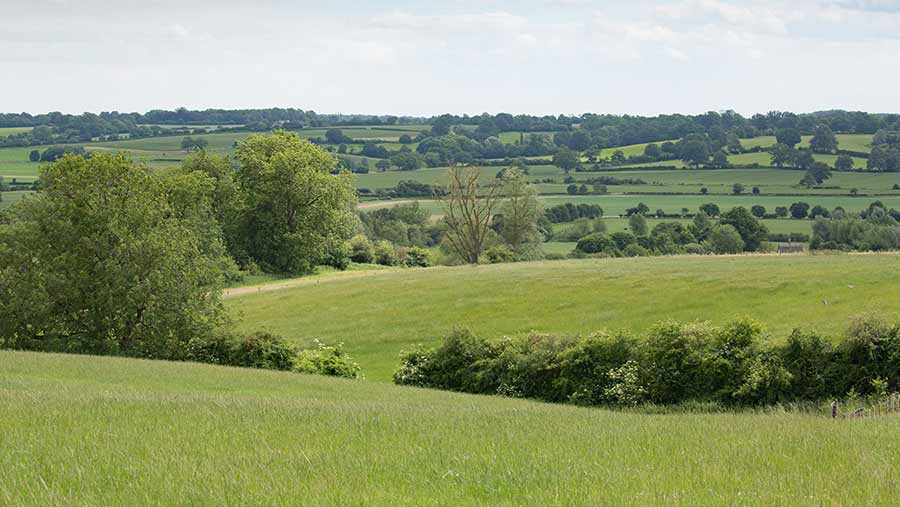Defra rejects claims its ELM scheme could be axed
 © Tim Scrivener
© Tim Scrivener Defra has issued a strong rebuttal over claims it is planning to water down or scrap Environmental Land Management (ELM), its flagship post-Brexit agri-environment scheme.
Over recent days, reports in the national media that Liz Truss may change or delay the proposed ELM schemes sparked an angry backlash from some of the UK’s biggest green groups.
The rumours were triggered by tweets from environmentalist and former Defra director Ben Goldsmith.
He suggested the government was considering reverting to an old-style area payment system of farm support, with the ELM scheme being derailed.
See also: Clarkson and 2,000 farmers demand halving of rural red tape
But in a blog published on its website on Monday 26 September, Defra said it “had always been clear” that “we do not intend to go back on our commitment to the environment”.
A UK government spokesperson said: “Claims we intend to go back on our commitment to the environment are simply not right.
“A strong environment and a strong economy go hand-in-hand. We have legislated through the Environment Act and will continue to improve our regulations and wildlife laws in line with our ambitious vision.
“We want every corner of our country to prosper, too. Bureaucratic processes in the planning system do not necessarily protect the environment, so by making sure we have the right regulations for our nation, we can make this happen.”
In a sub-section entitled “farming”, the blog continues: “We’re not scrapping the schemes. In light of the pressures farmers are facing as a result of the current global economic situation, including spikes in input costs, it’s only right that we look at how best to deliver the schemes to see where and how improvements can be made.”
‘Rapid review’
The government has confirmed it is conducting a “rapid review” of its agricultural policy following Liz Truss’s appointment as prime minister and a new top team at Defra, headed by environment secretary Ranil Jayawardena.
Farmers Weekly understands that Defra ministers believe there may be a case for a funding package separate to the agricultural transition to support farmers – whose businesses have been dented by input inflation and soaring energy costs triggered by the war in Ukraine – to boost food production.
However, the government does not see a pausing of cuts to basic payments and ELM as a solution to this.
The blog makes clear that boosting food production and strengthening resilience and sustainability “come alongside, not instead of, protecting and enhancing our natural environment”.
Autumn plan for food security
Later this autumn, the government will set out more details of its plans on how it will increase food security, while strengthening the resilience and role of farmers as stewards of the British countryside.
“As set out in the Growth Plan, we will be looking at the frameworks for regulation, innovation and investment that impact farmers and land managers, to make sure that our policies are best placed to both boost food production and protect the environment,” the blog states.
“This includes looking at how best to deliver the Environmental Land Management schemes to see where, and how, improvements can be made, and we will continue to work closely with the sector to ensure these are designed and delivered in their best interests.”
ELM is the government’s new agri-environment scheme for England, which is designed to replace the EU’s common agricultural policy (CAP) and pay farmers public money for delivering public goods through nature-friendly farming practices.
It consists of three schemes:
- Sustainable Farming Incentive (SFI)
- Local Nature Recovery
- Landscape Recovery.
The SFI scheme, which will pay farmers to improve soil health, is under way in England, however the other two schemes are still being designed.
‘Press pause’ – NFU
The NFU has called on government to pause the phased removal of basic payments until the new schemes are in place.
NFU president Minette Batters said: “We’re pleased the government is reviewing the framework for future farming schemes to help ensure farm businesses are supported through the current economic challenges and can make progressive decisions to boost growth and farming’s contribution to the nation.
“The NFU has always supported the ‘public money for public goods’ policy, but we have called for a delay as the scheme was not fit-for-purpose and ready to roll-out in its current form.
“I hope this review works in partnership with farmers to develop a framework that enables farmers to produce food for the nation and enhance our environment.”
